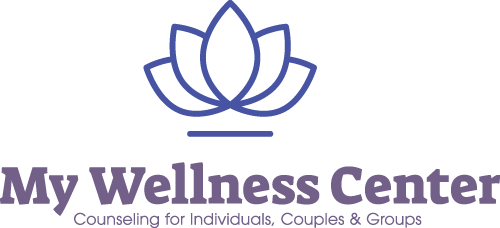Continuing education for therapists is essential for better patient health outcomes. When a therapist is trained on the latest research, modalities, and industry trends, they’re more likely to have a positive impact on their clients.
And that’s essential. Research shows that therapist burnout is all too real—making therapy for therapists a critical factor toward long-term career success.
The same is true with therapist CEs: The more you commit to continued education, the more likely you are to have positive outcomes.
Read on to learn everything you should know about CEUs for therapists.
Table of Contents
How to Find CEUs For Therapists
How to Identify the Best Therapist CEU Options for You
Final Thoughts On Therapist CEs
How to Find CEUs For Therapists
Here are some of the best strategies for uncovering convenient therapist CEs that fit around your busy schedule:
1. Start With Your Licensing Board
Every good CE search begins at the source: the state board that grants youmr license.
Most boards publish approved‑provider lists or spell out accepted accreditations. Reading these guidelines first prevents surprises at renewal time and saves you from paying for credits your specific board will reject.
2. Professional Associations & Accreditation Bodies
Similarly, your professional associations are a terrific resource for ongoing education. Some of the biggest associations in our field include:
| Discipline | Accreditor | What They Offer |
| Psychology | American Psychological Association (APA) | Large catalog of on‑demand webinars, journal‑based tests, and annual conferences earning CE credits. |
| Counseling | National Board for Certified Counselors (NBCC) | A Continuing Education resource that lets you sift through numerous NBCC‑Approved Continuing Education Providers. |
| Social Work | Association of Social Work Boards (ASWB) | The ACE Program approves providers whose courses meet uniform social‑work standards across the U.S. and Canada. |
3. University & Academic Medical Centers
Many graduate programs maintain CE divisions open to alumni and the wider community. Some of the unique advantages of seeking CEs through these academic institutions include:
- Evidence‑based content (often taught by researchers publishing the very studies you read).
- Interdisciplinary options spanning across complex topics like ethics, integrative care, and pharmacology.
Tip: If you’re worried about costs, call the school’s CE office and ask about auditing privileges or reduced rates for alumni.
4. National & Regional Conferences
Whether you pick the APA Convention, NASW’s Social Work Congress, or AAMFT’s Annual Systemic Family Therapy Conference, live conferences provide two major benefits at once:
- Industry networking.
- Earning a large number of credits in only a few days.
Plus, many conferences now record their sessions, which allows you to claim a combination of live and asynchronous credits.
5. Online CE Platforms
Modern CE life often happens from a laptop between client sessions. The internet is filled with reputable resources that can provide CEs.
6. Specialty & Modality‑Specific Organizations
If you practice a niche or specialized modality, its governing body often supplies the most rigorous CE. A few examples:
- EMDR International Association (EMDRIA) – Provides advanced trainings for EMDR certification and credits. Check out our EMDR services to learn more!
- American Association for Play Therapy (APT) – Provides play‑therapy credits.
- Motivational Interviewing Network of Trainers (MINT) – Provides MI skill refreshers.
These courses typically count toward both state renewal and specialty certifications, doubling their value.
7. Journals & Podcasts With CE Quizzes
Peer‑reviewed journals often attach post‑tests to select articles. Passing earns a credit or two while keeping you current on research.
A growing number of podcasts—such as the Counselor Toolbox series—offer CE quizzes for episodes. They’re a painless way to earn ethics or cultural‑competency hours during your commute or while running errands.
8. Government & Nonprofit Resources
US government organizations frequently offer and index CE credits available to mental health professionals. A few examples:
- SAMHSA webinars on trauma‑informed care
- CDC TRAIN for a variety of e‑learning modules.
- VA’s PTSD program, which dives into complex PTSD with a special focus on veterans.
These courses are usually free, though sometimes limited to U.S. clinicians.
9. My Wellness Retreats
We’ve launched our own therapist CE retreats through our sister brand: My Wellness Retreats. During these adventures, you’ll access a wide variety of career-boosting advantages, including:
- An opportunity to dig deep into relevant topics with world-class experts and speakers.
- A chance to enjoy self-care through nutritious meals, enriching meditation and yoga, and exploring a vibrant new environment.
- Building relationships with fellow therapists who are equally focused on growth and development.
Contact us to learn about our upcoming retreats and find one that’s perfect for your schedule.
How to Identify the Best Therapist CEU Options for You
Even with plenty of sources, not every credit is worth your limited time and budget. Use the checklist below to separate high‑impact learning from “certificate wallpaper.”
1. Confirm Board Acceptance—First
Look for the accreditor seal (APA, NBCC, ASWB, AAMFT, NAADAC, etc.).
Cross‑check your board’s rules: some states cap self‑study hours or require live ethics credits.
2. Match Courses to Your Clinical Goals
Create a three‑year CE roadmap tied to:
- Population focus (e.g., perinatal mental health, veterans).
- Modality mastery (e.g., Level II EMDR, advanced ACT).
- Regulatory must‑haves (e.g., suicide‑prevention, telehealth law).
If a course doesn’t advance one of these aims, skip it—even if it’s free.
3. Check Instructor Credentials
Scan bios for:
- Peer‑reviewed publications.
- Board certifications (e.g., ABPP, EMDRIA‑Certified).
- Real‑world clinical hours—not just academic lectures.
4. Evaluate Learning Format
Here are some of the pros and cons to the most popular therapist CE learning formats:
| Format | Pros | Cons |
| Live & In-Person | Networking, role‑plays, immediate feedback | Travel cost/time; limited seats |
| Live Webinar | Meets “synchronous” requirements; ask questions in real time | Must attend at set time zones |
| On-Demand | 24/7 access; pause & replay | May not count as “live” CE in some states |
| Hybrid | Conducive to your schedule and goals | Can be pricier than some other options |
5. Check Interactivity & Assessment
Not all courses provide the same level of professionalism or educational value. Look for CE courses that place a special emphasis on:
- Real-world case studies
- Breakout discussions
- Skills demonstrations
- Post‑tests or reflections
Together, these qualities create an enriching educational experience that benefits you, your clients, and your practice.
6. Assess Platform Usability & Record‑Keeping
A good CE provider should:
- Issue downloadable certificates immediately.
- Keep a transcript you can export in case of an audit.
- Offer responsive tech support—crucial for livestream events.
This sort of administrative service can remove some of the headaches from earning your CEs.
7. Prioritize Diversity, Equity & Inclusion (DEI)
Many boards now require cultural‑competency credits. Look for presenters from diverse backgrounds and courses addressing intersectionality, racial trauma, LGBTQIA+ care, or disability justice.
8. Plan for Ethics & Jurisprudence Early
Ethics hours are mandatory in nearly every jurisdiction. Schedule them first in your renewal cycle so you’re not scrambling later.
Final Thoughts On Therapist CEs
You’re responsible for scheduling your own therapist CEUs, so don’t treat this topic lightly. Dedicate time and energy to ensuring you’re consistently up to date. Some of the best tactics:
- Prioritize CEs so you’re never scrambling to earn credits. Mark your calendar if you need to!
- Look for resources that fit your learning style and schedule. For example, listening to approved podcasts may be easier than attending a seminar in the next town over.
- Look for educational opportunities that will stick. Attending a therapist retreat through My Wellness Retreats, for example, helps the lessons stand out in your mind.
With the proper strategy, earning your CEs can be an exciting, rewarding experience—not a chore on top of your usual duties and responsibilities.

